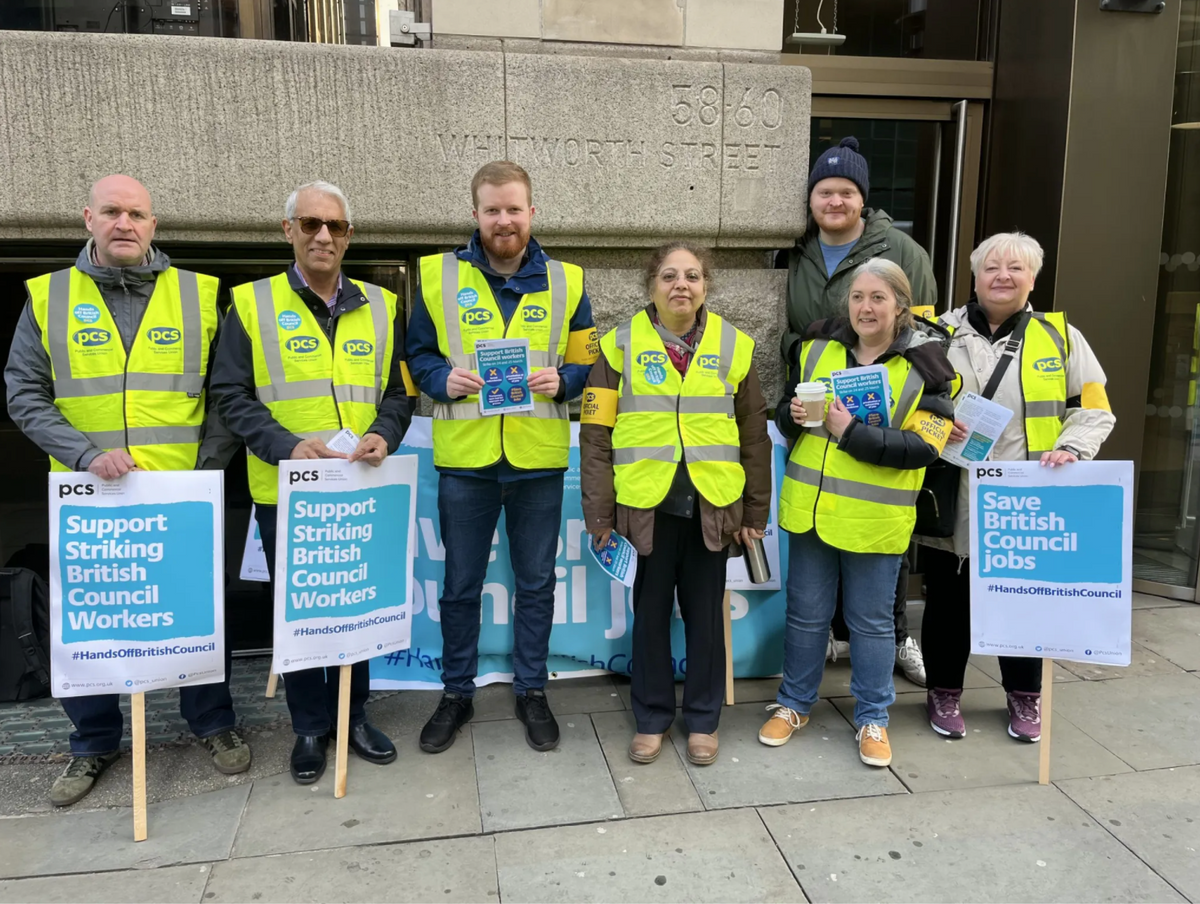Employees at the British Council—the UK’s international organisation for cultural relations—took part in a strike last week in protest over planned job cuts that could see its workforce reduced by at least 20%. Staff members working in Belfast, Cardiff, Edinburgh, London and Manchester took industrial action over two days.
According to a petition launched by the Public and Commercial Services Union, British Council staff were “told that 15 to 20% of staff will be cut from the organisation. In some areas this is up to a third, and additionally some roles overseas are being ‘localised’ which will force UK appointed staff out of their posts and reduce job opportunities.” The British Council has not disclosed the number of redundancies planned.
The PCS petition adds: “Rushing through restructuring, with little or no political or public scrutiny or oversight will be a disaster for public spending and for Britain’s global soft power influence, which supports the governments Global Britain agenda.”
Last year, the British Council began to wind down operations in 20 countries as part of a cost-cutting exercise. Grant-in-aid programming, which would have gone towards projects such as cultural heritage protection, will cease altogether in Afghanistan, Australia—following completion of the UK/Australia cultural season in 2022—Belgium, Canada, Chile, Namibia, New Zealand, Sierra Leone, South Sudan, Uruguay and the US.
The organisation said that due to the impact of Covid on the council’s commercial income, which was previously used to subsidise programming, and an overall decline in the government’s grant budget compared to pre-Covid, the British Council faces a significant funding shortfall.
The UK government has also made the British Council, previously a registered charity, an exempt charity under the Charities Act 2011. In other words, the British Council’s principal regulator will be the Foreign, Commonwealth & Development Office acting on behalf of the Foreign Secretary, rather than the Charity Commission for England and Wales. The development brings the British Council into line with nearly all charitable non-departmental public bodies, which are also exempt charities.
“Although our charitable status has changed, we retain all the benefits and responsibilities of being a charity. There will be no transfer of powers; simply a transfer of the responsibility for ensuring the British Council’s compliance with charity law. We remain both a non-departmental public body and a public corporation,” said a British Council spokesperson.
The PCS union is calling on the Foreign Secretary, Liz Truss, to “halt any further actions that threaten the British Council’s independence and charitable status” and also increase funding to the British Council to allow them time to recover their finances.
The British Council manages the British pavilion at the Venice Biennale which launches its 59th edition next month (23 April-27 November). This year’s UK representative is Sonia Boyce who came to prominence as part of the Black Arts Movement in the 1980s.


